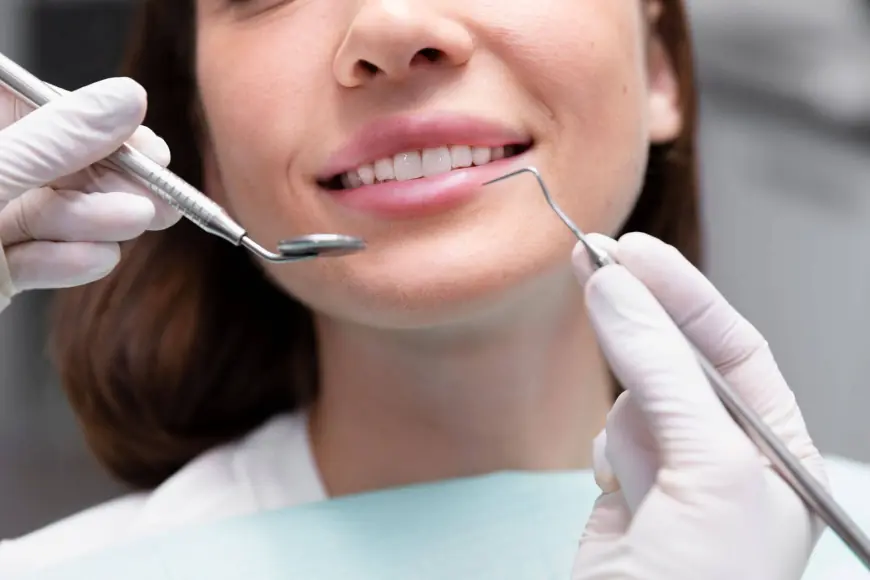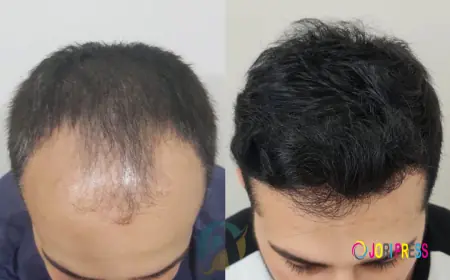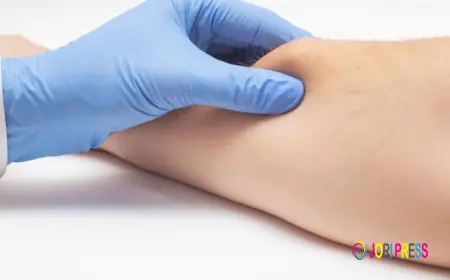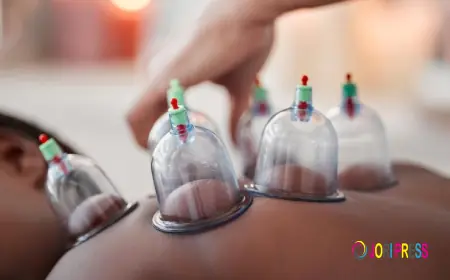Dental Tooth Filling Aftercare: Tips for Fast Healing
If you have recently received a Dental Tooth Filling in Dubai, understanding post-treatment care can help reduce discomfort, prevent complications, and maintain oral health. Following these guidelines supports optimal recovery and ensures the filling remains durable.

A dental filling is a common procedure for treating cavities and restoring the function of a damaged tooth. While the process itself is typically quick and effective, proper aftercare is essential to ensure fast healing and long-lasting results. If you have recently received a Dental Tooth Filling in Dubai, understanding post-treatment care can help reduce discomfort, prevent complications, and maintain oral health. Following these guidelines supports optimal recovery and ensures the filling remains durable.
What to Expect Immediately After a Filling:
After receiving a dental filling, it is normal to experience minor sensitivity to hot or cold foods and slight discomfort in the treated area. Numbness from local anesthesia may persist for a few hours, so it is important to avoid chewing until sensation returns fully. Most patients find that these effects subside within a few days, allowing normal oral function to resume comfortably.
Managing Sensitivity and Discomfort:
Mild sensitivity or discomfort is common after a filling and can be managed with over-the-counter pain relievers, as recommended by your dentist. Avoid extremely hot, cold, or hard foods for the first 24 hours to prevent irritation. Gentle brushing and flossing around the filled tooth help maintain oral hygiene without aggravating sensitivity. Monitoring these symptoms ensures that any unusual pain is addressed promptly.
Eating Guidelines After a Filling:
Immediately following a filling, it is advisable to eat soft foods and avoid chewing on the treated side until the numbness wears off. Sticky, chewy, or hard foods should be limited for at least 24 hours to prevent dislodging or damaging the new filling. Maintaining a balanced diet with nutrient-rich foods supports healing and overall oral health.
Maintaining Proper Oral Hygiene:
Good oral hygiene is critical for the longevity of your dental filling. Brush gently twice a day using a soft-bristled toothbrush and fluoride toothpaste. Floss carefully around the filled tooth to remove plaque and debris. Avoid aggressive brushing, which can compromise the integrity of the filling. Consistent oral care reduces the risk of secondary cavities and promotes faster healing.
Avoiding Harmful Habits:
Certain habits can negatively impact your dental filling and slow healing. Chewing on ice, hard candies, or pens, as well as teeth grinding, can cause cracks or dislodgement. Limiting sugary foods and beverages reduces acid production in the mouth, which helps protect both the filling and surrounding tooth structure. Conscious effort to avoid these behaviors supports long-term success.
Monitoring for Signs of Complications:
While complications are rare, it is important to watch for symptoms such as prolonged pain, swelling, persistent sensitivity, or a rough or loose filling. These signs may indicate an issue that requires professional attention. Scheduling follow-up visits with your dentist ensures any problems are addressed promptly, maintaining the effectiveness of the dental filling.
The Role of Fluoride in Healing:
Fluoride strengthens tooth enamel and supports the healing process after a filling. Using fluoride toothpaste, mouth rinses, or professional fluoride treatments can help protect the filled tooth from further decay. Fluoride also reduces sensitivity and reinforces enamel, contributing to the longevity of the filling and overall oral health.
Regular Dental Checkups:
Routine dental visits are essential for monitoring the condition of your fillings. Dentists can identify early signs of wear, cracks, or decay around the treated tooth and take preventive measures. Scheduling checkups every six months ensures that your Dental Tooth Filling in Dubai remains intact and continues to restore function and aesthetics effectively.
When to Contact Your Dentist:
Contact your dentist if you experience severe pain, prolonged numbness, swelling, or notice a rough or loose filling. Immediate professional evaluation helps prevent complications, such as secondary decay or infection. Prompt attention ensures that the filling continues to function properly and protects the overall health of your tooth.
Long-Term Care for Durable Fillings:
Proper aftercare extends the lifespan of your dental filling. Maintaining a consistent oral hygiene routine, avoiding harmful habits, and attending regular dental visits all contribute to durability. The choice of filling material, such as composite resin, amalgam, or ceramic, also influences longevity, but daily care plays a significant role in ensuring lasting results.
Supporting Overall Oral Health:
Dental fillings not only restore individual teeth but also support overall oral health. Proper aftercare prevents secondary decay, protects surrounding teeth, and maintains proper bite alignment. Healthy teeth and gums contribute to better digestion, speech, and overall wellbeing. Following aftercare instructions helps patients enjoy the full benefits of their dental treatment.
Final Thoughts:
Proper aftercare is essential for fast healing and the long-term success of a Dental Tooth Filling in Dubai. By following guidelines for managing sensitivity, maintaining oral hygiene, avoiding harmful habits, and attending regular dental checkups, patients can ensure their fillings remain durable and effective. Prioritizing post-treatment care not only enhances recovery but also supports overall oral health, helping you maintain a strong, healthy, and confident smile for years to come.
What's Your Reaction?
 Like
0
Like
0
 Dislike
0
Dislike
0
 Love
0
Love
0
 Funny
0
Funny
0
 Angry
0
Angry
0
 Sad
0
Sad
0
 Wow
0
Wow
0















































